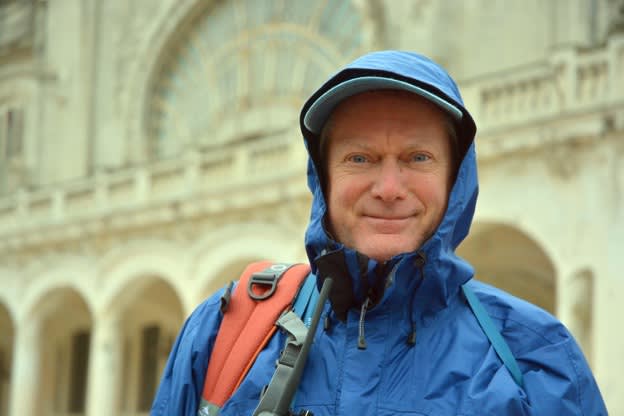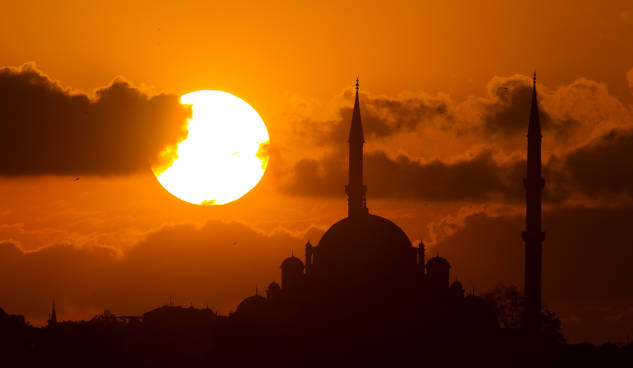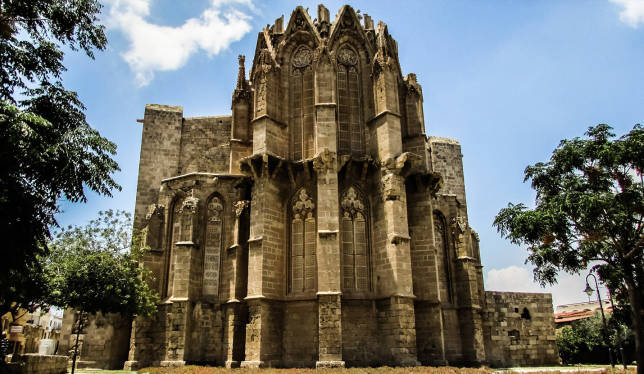Allan spent most of his childhood in a small mill town on Vancouver Island wondering what the rest of the world was like—and has spent much of his adult life finding out. He has always loved adventure and believes travel to be the pinnacle of all educational experiences. With a Ph.D. in art history from U. C. Santa Barbara Allan has taught many courses on ancient Greek and Roman, Byzantine, and Italian Renaissance art and architecture. Currently working as a lecturer in art history at U. C. Santa Cruz, Allan has worked on voyages across the Mediterranean, Adriatic, and Black seas for over a decade. As an experienced travel writer, he has several publications on Mediterranean art history, including the definitive field guide for the architecture and archaeology of Northern Cyprus, In a Contested Realm (2012), Palermo: Travels in the City of Happiness (2014), and The Hippodrome of Istanbul / Constantinople: An Illustrated Handbook of its History (2019). Allan also wrote, hosted, and co-produced the award-winning documentary The Stones of Famagusta: The Story of a Forgotten City (2008). Living in Cyprus between 2005 and 2007, many of his publications focus on the island’s fascinating art and architecture. After having traveled extensively in Turkey, the Middle East, the Eastern Mediterranean, and India, he shares his love of travel photography and the wonders of the world’s artistic creations on his travel blog, Allan’s Art and Architecture Worlds.

Where are you from and where have you lived?
I’m originally from Vancouver, BC, Canada, and have also lived in Santa Barbara and Santa Cruz, California, and Cyprus.
Tell us about yourself—what path led you to becoming an Expedition Leader?
I used to work as a lecturer for a company called INTRAV, working on a ship called the Clipper Adventurer in the early 2000s. I got wind of Exodus Travels’ sister company Zegrahm Expeditions from another lecturer, Paul Harris, who I’d previously worked with. I made an inquiry and I believe that a voyage in the Black Sea might have been my very first trip. This was more of a cultural trip as I had recently completed a Ph.D. in Art History and knew the Mediterranean very well, it was a good fit. I haven’t stopped traveling since.

What other jobs, positions or credentials do you have?
I am a university teacher and travel writer with a Ph.D. in Art History.
What other fields are you passionate about?
Photography, film, and writing.
Any awards, publications, appearances documentaries etc. do you have?
I made a documentary film called The Stones of Famagusta: The Story of a Forgotten City (2008) and have written a couple of travel books, including Palermo, Travels in the City of Happiness (2014) and The Hippodrome of Istanbul/Constantinople (2019). I have also written an architectural and archaeological field guide to northern Cyprus.
What organizations are you a part of?
UC Santa Cruz and Smithsonian Journeys.
What excites you (or what do you enjoy) about being an Expedition Leader?
I like to get off-the-beaten-track when I travel, only then does it feel like a true adventure. I don’t like to take the routes others usually take. That’s been a rule for me since I was in my early 20s backpacking around the world. Exodus Travels manages to offer trips that are well-organized for groups but maintains a sense of exploration and adventure.
What is your favorite Expedition memory?
See next entry. In truth, however, there are so many.
Can you tell us about a time that you were on an expedition that ended up taking an unexpected turn or made an unexpected discovery that took you off the planned trail?
We were heading from Alexandria to Beirut when news came in about some rapidly evolving civic unrest. We had to come up with a new plan quickly, and there weren’t too many good options in the area. I suggested going to Famagusta and Kyrenia in North Cyprus, and that’s what we did. Since I’d just written a guidebook on the area and done a documentary film on Famagusta, I felt suddenly very useful and had a chance to share something that previously the people on our trip had not known about.

What non-for-profits or causes do you support or feel strongly about?
Land conservation, eco-system conservation, and marine sanctuaries.
What are your top three countries or regions in the world to explore?
Turkey, Morocco, India, and Italy.
What’s left on your explorer’s bucket list/where do you still want to go that you haven’t been yet? Why there?
The Antarctic. I’d love to see the last wild frontier.
Who is an Expedition stye Traveler?
Expedition travelers are all united by the desire to explore off-the-beaten-track and discover something authentic. They don’t want to travel to predictable places. The Expedition traveler is also someone who cherishes the educational, historical, and cultural aspects of travel.
